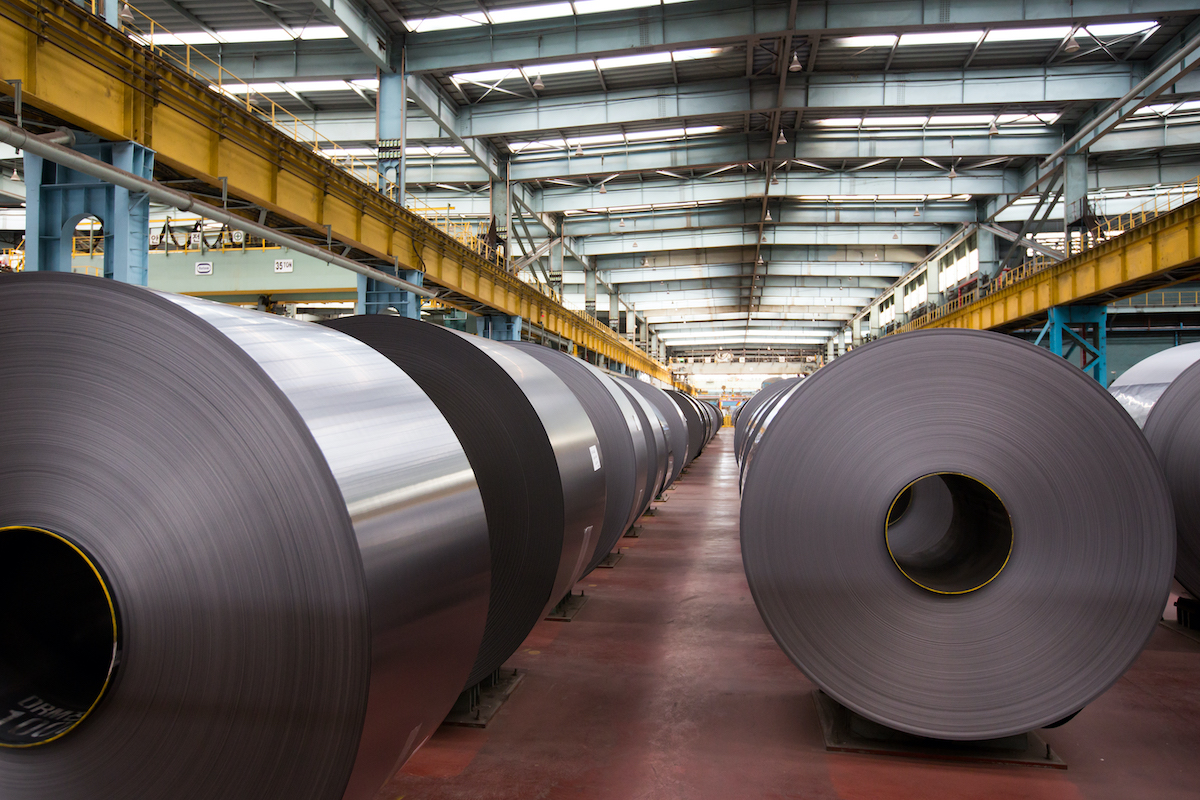The European market is seeing a consequential squeeze in finished steel supply following moderate ramp-ups from mills earlier in the year amid the COVID-19 pandemic, with additional shortages felt across the supply chain.
Other limited materials include paper, wood and plastics needed for steel packaging, and most crucial, there is a shortage of trucks and haulers made worse by the recent flooding disaster in Germany and the Benelux, forcing several mills to declare force majeure, sources told S&P Global Platts July 22.
Sources said acute shipment delays brought on by the flooding and lack of available trucks could incite upward pressure on prices following the summer lull in September, when most buyers are expected to inquire about new orders.
The daily S&P Global Platts assessment for hot-rolled coil stood at Eur1,170/mt ($1,382.60/mt) EXW Ruhr July 21, up by Eur2/mt on the day, stabilizing for several weeks following hefty price increases due to supply tightness, which pushed HRC prices to Eur1,190/mt EXW Ruhr in June.
Prices were at their lowest ever recorded in June 2020 at Eur396.50/mt EXW Ruhr following the deterioration in demand during the pandemic’s first wave.
Additionally, the prioritization of transporting material yielding higher fees, combined with added protectionism in Europe, has added significant pressure on regional resources and transport logistics.
To combat the shortage in drivers, governments around Europe have introduced new policies aiming to increase the number of drivers on the road and increase the amount of time drivers spend on the road.
Government intervention
The Spanish government has lowered the minimum age required to drive commercial heavy goods vehicles to 18 years, and the British government has temporarily relaxed drivers’ maximum daily hours from nine to 10 hours.
“Some of our clients are having to use their own vehicles to collect. This will continue for at least six months, with the UK exacerbated by the Brexit situation,” a UK-based mill source lamented.
“A lot of lorry drivers can’t get their visas, and travel is a lot more difficult. We are speaking to the International Steel Trade Association to hear about a possible extension of drivers hours, but it doesn’t look likely.”
While the flooding in Germany and the Benelux has not directly hindered the UK, the mill source said the impact on stretched lead times would have a rippling effect across the Continent, putting more pressure on other producers like Arcelor Mittal and Marcegaglia to step up and deliver.
The extent of the flooding damage, coupled with chronic transportation issues, was made clear by one Benelux service center source who called it a “catastrophe.”
“Transport is already a big problem. I am collecting material from Italy, the volume we would like to have loaded is limited due to the number of trucks, and thus we need to calculate 3-5 days extra for delivery,” the source said.
“There’s a shortage of 35,000 truck drivers. The average age of a truck driver in Germany is 62, and to get a license it costs Eur6,000. E-commerce activity has also increased the demand.”
Hauler shortage effects on other markets
On the bulk ferroalloy side, traders were heard planning for a “chaotic” fourth quarter. One trader told Platts that the situation was turning into a perfect storm.
“You have everyone producing at maximum, this will continue through the year, and then with the Christmas rush on top of that, we’re going to have some serious problems,” he said. “It is definitely going to impact our ability to properly service our customers.”
An aluminum trader told Platts that this issue has been under the surface for a long time and systematic changes were needed to combat the shortage. “Driverless trucks are the only way this is fixed, no one wants to be a truck driver these days,” he said.
The same woes were felt in the longs market, with a European trader citing difficulty locating trucks during periods of peak demand.
“There might be some delays in order delivery and some potential orders requiring ultra-prompt shipment might be missed as a result,” he said. “I don’t see an obvious solution to it.”
— Amanda Flint, William Healy, Wojtek Laskowski






